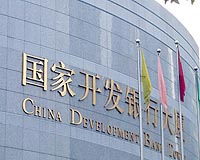| . |  |
. |
Washington (AFP) Jan 13, 2010 Google's refusal to bow to censorship in China puts pressure on other US technology giants but analysts said it was not immediately certain they would follow the Internet giant's lead. "China is one of the fastest growing markets in the world," said Rob Enderle of Silicon Valley's Enderle Group. "It is a hard one to walk away from. "Going against a government is problematic," Enderle said. "If you want to do business in China you have to follow their rules and China's rules are particularly onerous." Google, Cisco, Microsoft and Yahoo! have come under attack in recent years from rights groups, members of the US Congress and others, accused of abetting a Web censorship machine dubbed the "Great Firewall of China." China exercises strict control over the Internet, blocking sites linked to Chinese dissidents, the outlawed Falun Gong spiritual movement, the Tibetan government-in-exile and those with information on the 1989 Tiananmen massacre. A Cisco spokesman said the company had no comment on Google's announcement it would no longer filter Web search results in China after Gmail accounts of Chinese human rights activists around the world were hit by cyberattacks. Microsoft declined to comment on Google's move other than to say it has "no indication that any of our mail properties have been compromised." A Yahoo! spokeswoman welcomed Google's decision and stressed that the company, "while maintaining a financial investment," had sold its China business and no longer has "operational control" over Yahoo! China. "Yahoo! is committed to protecting human rights and takes our users' privacy and security very seriously," the spokeswoman said. "We condemn any attempts to infiltrate company networks to obtain user information. "We stand aligned with Google that these kinds of attacks are deeply disturbing and strongly believe that the violation of user privacy is something that we as Internet pioneers must all oppose," she added. There was no immediate reply from Apple to a request for comment from AFP. Apple was reported last month to be blocking iPhone users in China from downloading applications about two figures Beijing considers "separatists": the Dalai Lama and exiled Uighur leader Rebiya Kadeer. Danny O'Brien of the San Francisco-based Electronic Freedom Foundation said he hopes "other tech companies will follow Google's lead." "Too many of them have been willing to comply with Chinese demands that they check their values at the border," O'Brien said in a blog post. Clothilde Le Coz, Washington director of Reporters Without Borders, which organized a "World Day Against Cyber Censorship" in March along with Amnesty International, welcomed Google's move but said it was too early to say what impact it would have. "It's courageous. It's something positive in favor of freedom of expression," she told AFP. "But it's not immediately clear that others will follow and whether Google.cn not censoring its results will lead to more information becoming available in China." Google said it had decided to no longer censor Web search results in China after Gmail accounts of Chinese human rights activists around the world were targeted by "highly sophisticated" cyberattacks "originating from China." Google chief legal officer David Drummond also said Google may be forced to leave China. "These attacks and the surveillance they have uncovered -- combined with the attempts over the past year to further limit free speech on the Web -- have led us to conclude that we should review the feasibility of our business operations in China," he said. Leslie Harris, president of the Center for Democracy & Technology, praised Google for taking a "bold and difficult step for Internet freedom in support of fundamental human rights" and noted that Google, Microsoft and Yahoo! were all members of the "Global Network Initiative" (GNI) formed in late 2008. GNI brings together Internet companies, human rights organizations, academics and investors and commits the technology firms to "protect the freedom of expression and privacy rights of their users." During a visit to China in November, US President Barack Obama pushed for an unshackled Internet saying he was a "strong supporter of open Internet use" and a "big supporter of non-censorship."
Share This Article With Planet Earth
Related Links The Economy
 China moves to rein in lending amid overheating fears
China moves to rein in lending amid overheating fearsBeijing (AFP) Jan 12, 2010 China pulled a pair of fiscal levers on Tuesday as authorities sought to rein in a surge of aggressive lending by banks that has raised fears of inflation and a looming asset bubble. After issuing a series of recent calls for banks to moderate their lending activity, the central bank took action Tuesday, hiking the minimum amount of money that banks must keep in reserve for the first time in ... read more |
|
| The content herein, unless otherwise known to be public domain, are Copyright 1995-2009 - SpaceDaily. AFP and UPI Wire Stories are copyright Agence France-Presse and United Press International. ESA Portal Reports are copyright European Space Agency. All NASA sourced material is public domain. Additional copyrights may apply in whole or part to other bona fide parties. Advertising does not imply endorsement,agreement or approval of any opinions, statements or information provided by SpaceDaily on any Web page published or hosted by SpaceDaily. Privacy Statement |